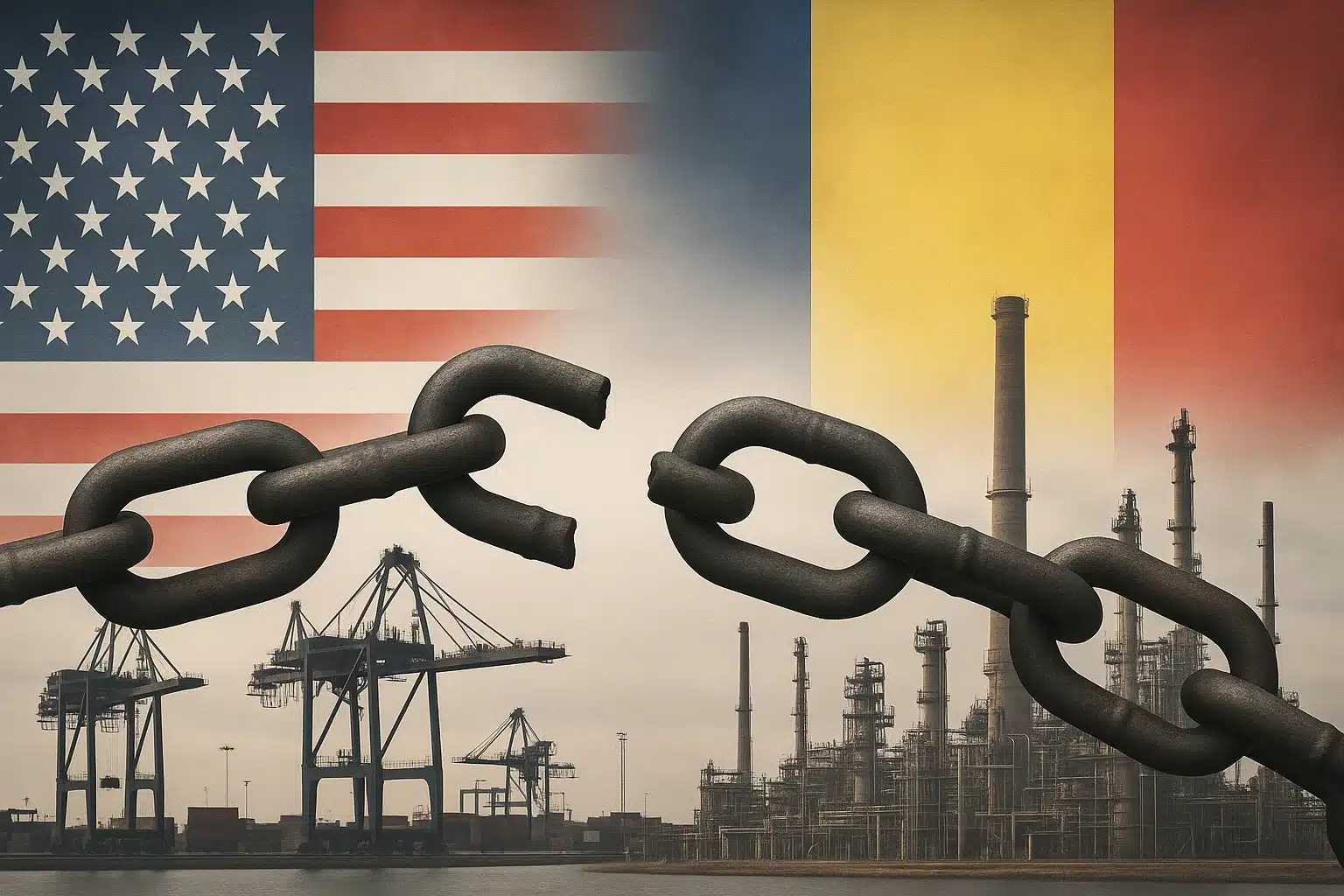Over the past few months, a slow but meaningful shift has begun to take shape across Romania’s economic landscape. While the headlines may not scream “exodus,” there are unmistakable signs that American businesses are quietly re-evaluating their position in the region, where many are opting to scale down, relocate, or halt expansion altogether.
As an American investor living in Romania, I’ve witnessed this trend firsthand. And while recent research frames the risk of a full-scale US withdrawal as “speculative,” I believe we’re already seeing a foundational shift with serious long-term implications for Romania’s workforce, investment climate, and strategic positioning in a volatile global economy.
Real People, Real Jobs: The Agency That Left
One example stands out starkly. An American digital agency I previously collaborated with, one that had deep ties in Europe and a significant Romanian and Polish presence, recently laid off ~70 employees across the continent. These positions were quietly moved to Southeast Asia, where operational costs are lower and, increasingly, the perception of Western hostility toward American firms is less of a concern.
I spoke directly with the agency’s founder shortly after the layoffs, hoping to understand the true motivations behind such a dramatic pivot. He explained that while cost savings were certainly a factor, they weren’t the primary driver. What truly tipped the scales, he said, was the increasing friction they faced operating in Europe – particularly in markets like Romania, Germany, and Poland where navigating regulatory hurdles had become more burdensome, and interactions with local teams had grown tense. According to him, there was a noticeable shift in employee attitudes, with a rising discomfort or even resentment toward American leadership. Combined with mounting compliance risks and political uncertainty, the environment had simply become “too unstable and unfriendly” to justify continued investment.
This wasn’t an isolated decision. It reflects a growing calculus among American business owners and managers: when costs are rising, and cultural or political frictions increase, alternatives begin to look more attractive. The Philippines, India, and Vietnam are top of mind for many decision makers in my professional network.
Even as someone deeply invested in Romania, I’ve recently made decisions I never anticipated. I needed to fill three new roles for a growing product initiative. Normally, I would have hired locally, as Romania has long been a go-to for skilled, affordable talent. But this time, I hired in the Philippines.
Why the change?
Frankly, my last few recruiting cycles in Romania were disheartening and I empathized with my agency friend’s experiences. Candidates, particularly under 30, displayed overt hostility when they realized the company was American-owned. Some were openly rude. There was a kind of reflexive contempt, often rooted in broader geopolitical narratives, that made the recruitment process adversarial. To speak openly, my view on the professionalism of Romanians has been permanently altered. Not even the Chinese or the Russians treated me or my business with such levels of contempt when tensions between our governments rose.
This is new. I’ve been hiring in Romania for years and rarely encountered this level of animosity. It suggests a deeper cultural shift, one where the once-strong appetite for foreign – particularly American – investment is fraying at the edges. I am confident that both social media and anti-American news networks are playing a significant role in this shift.
I am unique qualified to say that if Romanians do not want American money in their markets, then we simply won’t invest in Romania. This is not the only emerging economy with upside potential. It is one thing for governments to disagree, but when everyday people become openly hostile toward those they once welcomed as partners, it signals a permanent breakdown in trust – and for investors, that’s game over.
Risks to Freelance and Remote Work
Of course, these are anecdotes – so, let’s talk numbers. Research shows that over 100,000 Romanians are directly employed by US-controlled companies, representing more than 2% of the national workforce. But that figure doesn’t include the swelling ranks of Romanian freelancers and remote contractors working for US companies without ever forming local legal entities (SRLs). These engagements often fly under the radar of official statistics, but they are a vital part of Romania’s modern economy, especially among younger workers.
Emerging US and EU policies threaten to undermine this system. If the United States follows through on proposed tariffs on services or imposes punitive withholding taxes on earnings from Europe, as discussed in the recent EY Romania analysis, freelancers could see their incomes slashed by up to 30%. For Romania’s IT and digital services sector, which depends heavily on US clients, such a move would be a serious blow.
Final Thoughts: A Call for Reflection
The withdrawal of US business from Romania may not come in the form of dramatic headlines or factory closures. It’s more likely to manifest quietly: through lost opportunities, withheld investments, and shifting hiring decisions made in spreadsheets and boardrooms far from Bucharest.
Romania still has every ingredient needed to remain a valuable partner in the global economy: talent, location, and potential. But if it wants to preserve and grow that role, it must address not just economic policy – but cultural perception. Otherwise, the question will shift from “why are US companies leaving?” to “why would they stay?”
